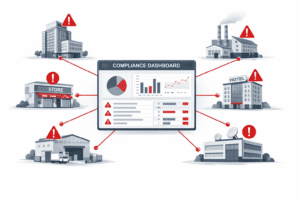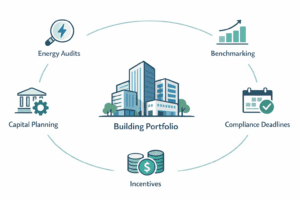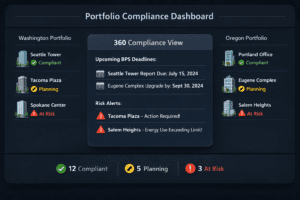I. Introduction
A. Definition of Benchmarking and Corporate Ethics
Benchmarking involves the process of comparing one’s business processes and performance metrics to industry bests or best practices from other companies. It aims at uncovering strategies and processes that improve performance, efficiency, and quality. Corporate ethics, meanwhile, encompasses the ethical practices and policies that guide the conduct of a company and its employees. It lays the foundation on which businesses make their decisions, reflecting their values and ensuring accountability in their interactions with stakeholders. Together, benchmarking and corporate ethics shape how a company conducts itself in pursuit of long-term sustainability and credibility.
B. Importance of the Topic
In an age where transparency in corporate governance is a significant concern for consumers, investors, and regulators, understanding the confluence between benchmarking laws and corporate ethics is more relevant than ever. This intersection fosters an environment where businesses not only strive to meet industry standards but do so through ethical lenses that promote fairness, integrity, and social responsibility.
C. Brief Overview of the Blog Content
This blog will explore the relationship between benchmarking laws and corporate ethics, their impact across various industries, and the benefits and challenges of their integration. It will also look at potential future implications, providing a comprehensive analysis for business leaders and policy-makers interested in fostering ethical and competitive business practices.
II. Relationship between Benchmarking Laws and Corporate Ethics
A. Basic Principles of Benchmarking
The benchmarking process involves identifying the best firms in your industry, or in another industry where similar processes exist, and comparing the results and processes of those studied (the “targets”) to one’s own results and processes. The goal is to discern how well the targets perform and, more importantly, how they do it.
B. The Importance of Corporate Ethics
Corporate ethics are critical as they influence a company’s reputation and its internal morale. Ethical companies are perceived as more reliable and trustworthy, which enhances their market position and can lead to better profitability. Ethical practices are particularly important in attracting millennial and Gen Z workers, who tend to prioritize sustainability and ethical employment practices.
C. How Benchmarking Laws Intersect with Corporate Ethics
Benchmarking laws often serve as a framework within which companies can navigate their ethical obligations. For instance, the energy benchmarking ordinance encourages buildings to measure their energy use and report it publicly. This not only promotes energy efficiency but also transparency, an ethical cornerstone in modern business operations.
III. Impact of Benchmarking Laws on Corporate Ethics in Various Industries
A. Tech Industry
The tech industry often leads the way in utilizing benchmarking for competitive advantage. Laws around data privacy and cyber-security, for instance, drive tech companies to not only meet minimum standards but to exceed them to gain consumer trust. Ethical tech companies take these benchmarks a step further by integrating them into their corporate ethos, often using them as baseline standards for innovation.
B. Manufacturing Industry
In manufacturing, benchmarking laws often focus on environmental impacts, such as emissions and waste management. Compliance is not merely about avoiding penalties but is integral to operating responsibly. Ethical manufacturers use these laws as a minimum standard and continually strive to exceed them, reflecting a commitment to environmental stewardship as part of their corporate ethics.
C. Health Industry
In healthcare, benchmarking laws ensure that institutions meet fundamental standards of care and patient privacy (as dictated by laws such as HIPAA in the U.S.). Ethical considerations in benchmarking go beyond mere compliance; they also involve upholding the dignity and rights of patients, ensuring equitable care, and maintaining the confidentiality of patient information.
D. Retail Industry
Retailers dealing with benchmarking laws related to consumer safety, product quality, and sustainable sourcing are compelled to integrate these concerns into their business models. Ethical retailing practices not only comply with these benchmarks but also embrace holistic approaches that consider the well-being of all stakeholders including suppliers, employees, and consumers.
IV. Benefits and Challenges of Incorporating Benchmarking Laws into Corporate Ethics
A. Benefits
- Ensuring Compliance: Staying within legal parameters helps avoid financial and reputational damage.
- Building Trust and Transparency: Companies that openly adhere to and exceed benchmarking standards can increase their trustworthiness among stakeholders.
- Encouraging Fair Competition: When companies are held to a common standard, practices that tilt the competitive field unfairly are minimized.
B. Challenges
- Difficulty of Implementation: Incorporating sophisticated benchmarking procedures can be technologically and financially demanding.
- Resistance to Change: Organizational change is often met with inertia, which can slow down the integration of new standards.
- Potential for Misuse: Focusing narrowly on meeting specific benchmarks may lead companies to neglect broader ethical considerations.
V. Potential Future Implications of Benchmarking Laws on Corporate Ethics
As regulatory environments tighten and public expectations shift towards greater transparency and responsibility, the future will likely see more stringent benchmarking laws. This could lead to a more prominent role of these laws in shaping corporate ethics, embedding deeper ethical considerations into business strategies for long-term sustainability.
VI. Conclusion
This analysis underscores the pivotal role of benchmarking laws in shaping corporate ethics across industries. By adhering to these laws, companies do not just fulfill legal requirements—they also demonstrate their commitment to ethical business practices. Moving forward, it is crucial for companies to consider these standards as foundational to their operational and strategic frameworks. By doing so, businesses will not only enhance their compliance but also strengthen their ethical standing and competitive advantage in the market.
VertPro.com serves as a resourceful platform for property owners and managers seeking to enhance their buildings’ energy efficiency. The site offers a range of services, including Commercial Energy Audits, Benchmark Compliance consultancy, and a Construction Marketplace. At the heart of VertPro® is a suite of SaaS technology-based solutions designed to assist in navigating the complexities of Energy Benchmarking and Energy Audits/RCx Plus, while ensuring adherence to over 60 Energy Benchmarking and Energy Efficiency Laws across the country.
For those looking to improve their property’s energy usage and operational value, VertPro.com provides a diverse array of tools and information. The site aims to facilitate a better understanding of energy efficiency practices and legislation, helping building owners and property managers make informed decisions about their energy strategies while complying with all energy ordinances and laws.

















